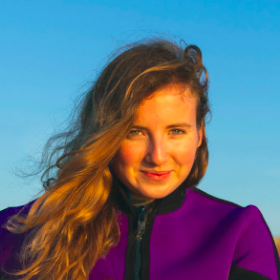
Droughts in the Andes, significant rainfall in Nepal and swarms of mosquitoes in the Alpine routes of Washington, all of which have long been notoriously snowy regions, are beginning to show strange and unpredictable weather patterns, and there's only one plausible culprit: climate change.
With the COVID-19 pandemic feeling like a distant memory to many people, many avid adventurers returned to the slopes this season for their winter vacation. However, many skiers faced a dilemma—the lack of snow. For example, a recent study showed that in approximately 35 to 60 years across the western U.S., mountainous states will be snowless if society continues emitting greenhouse gasses at current rates. Less snow on the mountains could prove to become fatal for the snow sports industry.
If you've watched the recent Netflix documentary Sherpa, you may know about mountain and ski guides' extensive knowledge of the mountains. They experience climate change first-hand as they guide tourists through mountains daily. To that end, the travel platform 57hours recently decided to survey 59 experienced guides to understand the effects of climate change in the mountains.
The survey revealed some intriguing results. To start, 98 percent of the surveyed guides answered "yes" when asked if they had noticed the effects of climate change, and 81 percent indicated that climate change had required them to alter the times of the year in which they can guide visitors across certain places.
The most significant changes observed by the surveyed guides were the retreat of glaciers and permafrost changes. Many guides commented significantly more rockfall due to receding glaciers, making glacier travel much more hazardous. In particular, guides are witnessing evidence of serac fall—collapsing glacial ice—causing specific routes to no longer be safe. Several survey respondents in the U.S. Pacific Northwest noticed that record-shattering heatwaves rendered glaciers and south-facing approaches extremely dangerous and unrecognizable; they observed that more glacier accidents occurred in the PNW this year than in previous years.
During TriplePundit’s interview with an experienced ski guide, Gregg Hill, he said, "I see the effects of climate change every day. I guide melting glaciers and more dangerous mountaineering routes, bigger and more irregular avalanche cycles and drier deserts."
Hill is one ski guide who believes it is essential to recognize that travelers are a part of the problem of climate change.
"We experience so many blissful moments in nature, yet we often disregard the impact we cause when exploring it,” said Hill. “Before, I would take more than ten flights a year without even considering the effect they were having. Now my philosophy has changed. I try to adventure in my backyard as much as possible, and I encourage others to do the same.”
He added, “With backyard adventures, you are a constant reminder of them. You look over and see that mountain you've submitted or that river you rafted on, and immediately the memory of that day is brought back into focus and savored again. There is so much more long-term value in these close-to-home adventures."
A recent study showed that tourism accounts for approximately 8 percent of greenhouse gas emissions, but the industry has been slow to adapt and work towards climate solutions. In light of this, Hill has taken matters into his own hands and has become a net-zero adventurer, teaching his clients ways they can do the same.
"The most important thing I believe I can do when tackling such a daunting issue is to have open and honest conversations with my clients about climate change,” Hill further explained to 3p. “When my clients come on a ski guide trip, I try to keep the conversation around climate change present throughout. From renting electric cars to eating local and sustainably sourced food, we are continuously looking for ways to reduce the trip's carbon footprint."
With climate change becoming a more prevalent issue by the day, watch for many travelers to become more conscious about their collective environmental impact on the planet.
Image credit: Luca Calderone via Unsplash

Holly is a recent graduate from the University of Southampton with a bachelor's degree in English Literature and Philosophy. She is currently working as a freelance writer and has a strong interest in the outdoors lifestyle, environmental issues and sustainable solutions. In her free time, she trains and competes internationally as a professional kite surfer.














